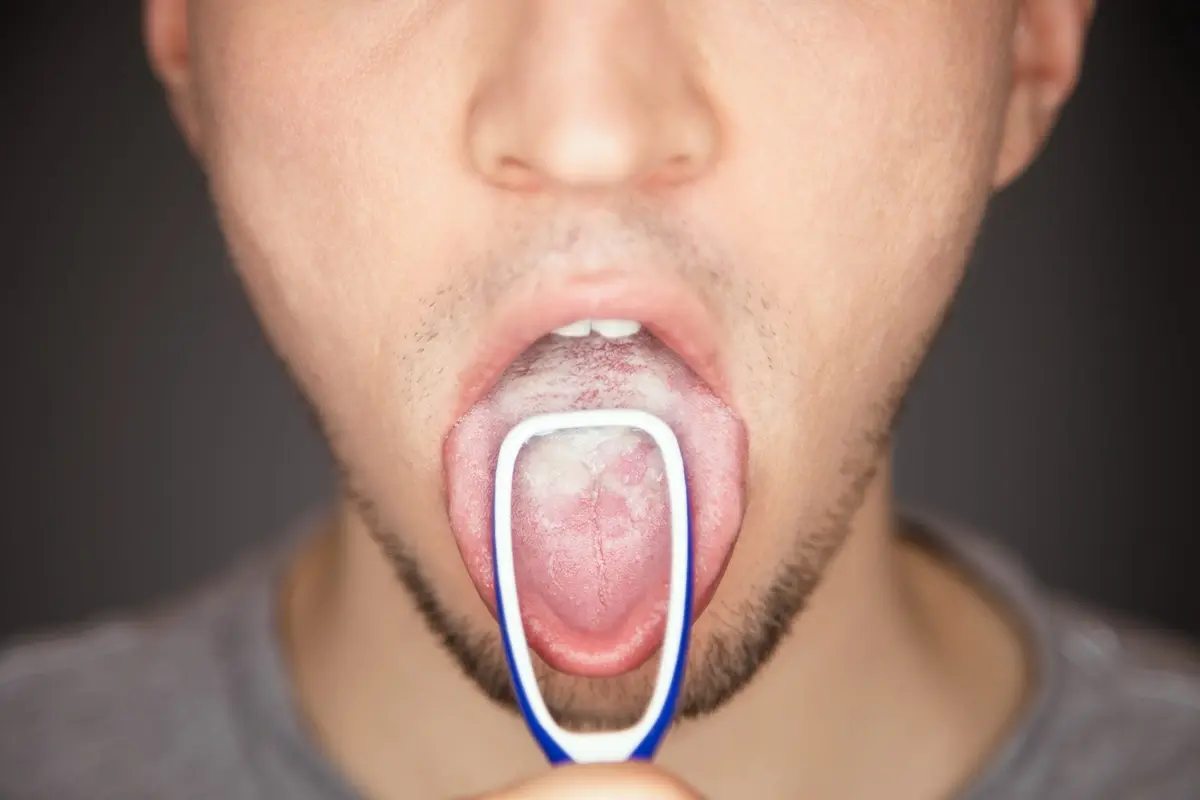 An unpleasant sensation of bitterness in the mouth is usually the result of a sudden release of contents from the duodenum into the stomach and then into the esophagus. This can lead to the presence of bile, which normally does not enter the esophagus and oral cavity. Such a symptom can be triggered by consuming bile-stimulating foods: fatty or smoked dishes, large amounts of coffee, or alcohol. However, there can be other causes for this uncomfortable condition. The diagnosis, treatment, and prevention of the ailment depend on the circumstances and timing of the bitterness.
An unpleasant sensation of bitterness in the mouth is usually the result of a sudden release of contents from the duodenum into the stomach and then into the esophagus. This can lead to the presence of bile, which normally does not enter the esophagus and oral cavity. Such a symptom can be triggered by consuming bile-stimulating foods: fatty or smoked dishes, large amounts of coffee, or alcohol. However, there can be other causes for this uncomfortable condition. The diagnosis, treatment, and prevention of the ailment depend on the circumstances and timing of the bitterness.
Causes of Bitterness in the Mouth
An important factor in determining the causes of discomfort is the timing and circumstances of the appearance of this symptom, as bitterness at night differs from bitterness in the morning.
Accompanied by Dry Mouth, Heartburn, or Nausea
This combination of symptoms often indicates a backward flow of contents from the duodenum and stomach into the esophagus. If this condition is habitual, it may be a sign of gastroesophageal reflux disease (GERD). Without treatment, reflux esophagitis can lead to serious complications such as esophageal stenosis and cancer. Therefore, suppressing symptoms with antacids without proper examination and prescriptions from a gastroenterologist can be dangerous.
Occurs After Physical Exertion
If bitterness in the mouth is accompanied by significant heaviness in the right upper abdomen, it may indicate a disease of the or gallbladder.
Occurs After Overeating
This condition may indicate inflammation of the mucous membrane of the duodenum, stomach, or GERD – gastroesophageal reflux disease.

Occurs in the Morning
Bitterness in the mouth in the morning signals potential issues with the liver, gallbladder, or bile ducts. In such cases, a person typically wakes up with an unpleasant odor from the mouth. Possible conditions include hepatitis, cholecystitis, or gallstones.
Occurs at Night
Nighttime bitterness in the mouth is often caused by the reflux of bile and stomach contents into the esophagus, as well as problems with the gallbladder or liver. A bitter taste may indicate chronic diseases and hormonal imbalances (for instance, hormonal changes during pregnancy or menopause can affect digestive system function and bile secretion). This symptom may also reflect bile stagnation or improper bile drainage, poor oral hygiene, cavities, or gum inflammation due to periodontitis or gingivitis. Nighttime bitterness can result not only from overeating at night (especially fatty foods) but also from prolonged fasting, neurological issues, and the use of certain medications (bitterness in the mouth can be a side effect of antibiotics, antidepressants, and cardiovascular drugs).
Bitterness in the Mouth and White Tongue
This is often a symptom of gastrointestinal tract diseases, liver issues, gallbladder problems, or fungal infections in the oral cavity. Possible conditions include gastroesophageal reflux (GERD), , ulcers, cholecystitis, or candidiasis (thrush).

Gathering Medical History
The sensation of bitterness may be a sign of the following conditions:
- gastroesophageal reflux disease (heartburn caused by the backflow of stomach acid and digestive enzymes into the esophagus);
- gastroduodenitis (inflammation of the stomach and duodenum mucosa);
- biliary dyskinesia (disruption of gallbladder and bile duct motility);
- choledocholithiasis (gallstones in the bile ducts);
- cholecystitis (inflammation of the gallbladder);
- hepatitis (inflammation of the liver);
- pancreatitis (inflammation of the pancreas);
- complications following peptic ulcer disease, etc.
Since the bitter taste is often a sign of some underlying issue in the body, experiencing this symptom repeatedly over several weeks or months is a reason to consult a doctor. Depending on the preliminary diagnosis, the therapist may refer the patient to a gastroenterologist (for gastritis, duodenitis, pancreatitis, non-infectious hepatitis), an infectious disease specialist (for viral hepatitis or parasitic infections), or a surgeon (for complications from peptic ulcers, cholecystitis, choledocholithiasis, or tumors in the biliary system).
How to Get Rid of Bitterness in the Mouth
However, bitterness in the mouth is not always caused by gastrointestinal diseases; for example, it can be a manifestation of an allergy to sutures or dental implants. To establish a diagnosis, the doctor will inquire about allergies, hereditary predispositions, past illnesses, and chronic conditions. Following this, abdominal palpation is performed (bitterness in the mouth and abdominal bloating often indicate gastrointestinal issues), and additional tests are ordered.
For instance, ultrasound is typically used to diagnose liver and gallbladder diseases, along with specific liver function tests and hepatitis virus analyses. To detect stomach and duodenal pathologies, a study using a probe (gastroscopy) or contrast X-ray is conducted. A comprehensive examination is essential for prescribing the correct treatment.
Here’s what you can do:
- Review your eating habits (add more whole grains, fresh vegetables, and fruits to your diet, limit coffee intake, and avoid alcohol, fatty, and fried foods);
- Avoid overeating before bed (dinner should be moderate);
- Maintain (brush your teeth twice a day, use dental floss, mouthwash, and visit the dentist).
These are steps you can take to alleviate bitterness in the mouth on your own. However, unapproved adjustments with medications may temporarily mask the symptom but will not address its underlying cause.
Photo: Unsplash

